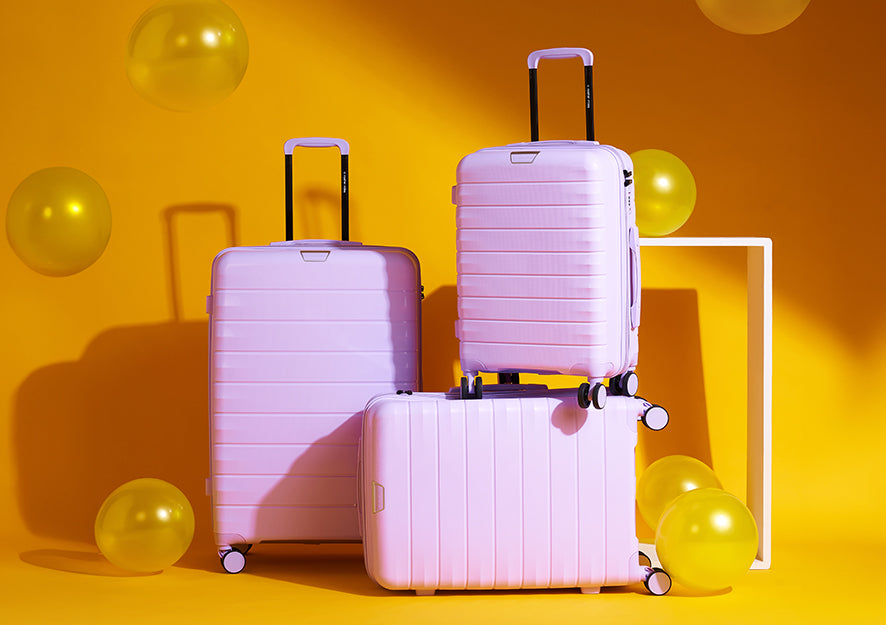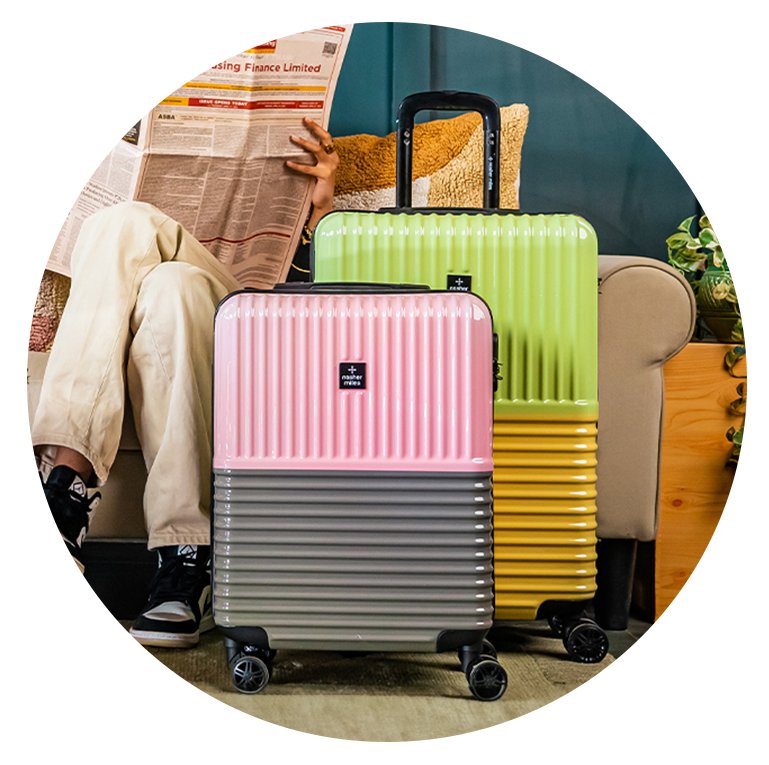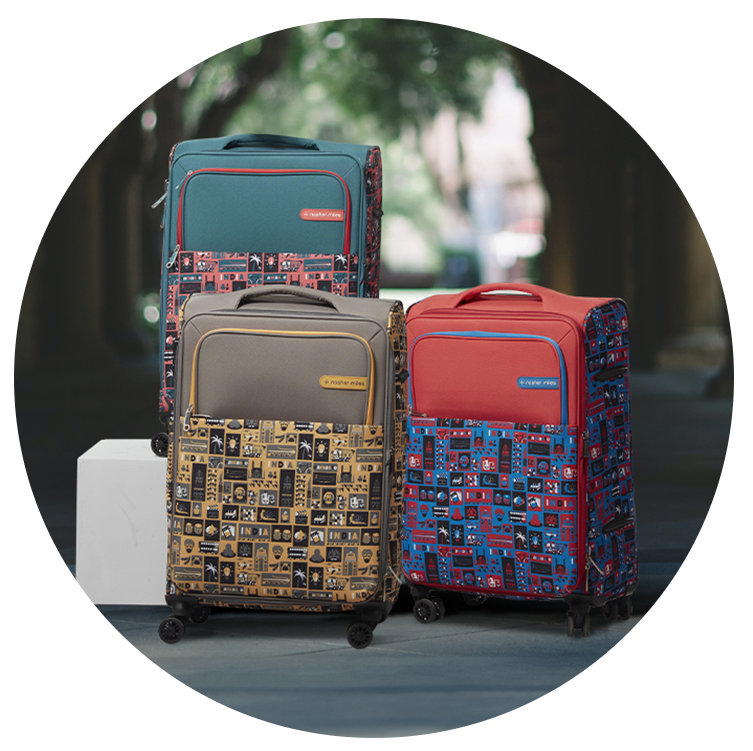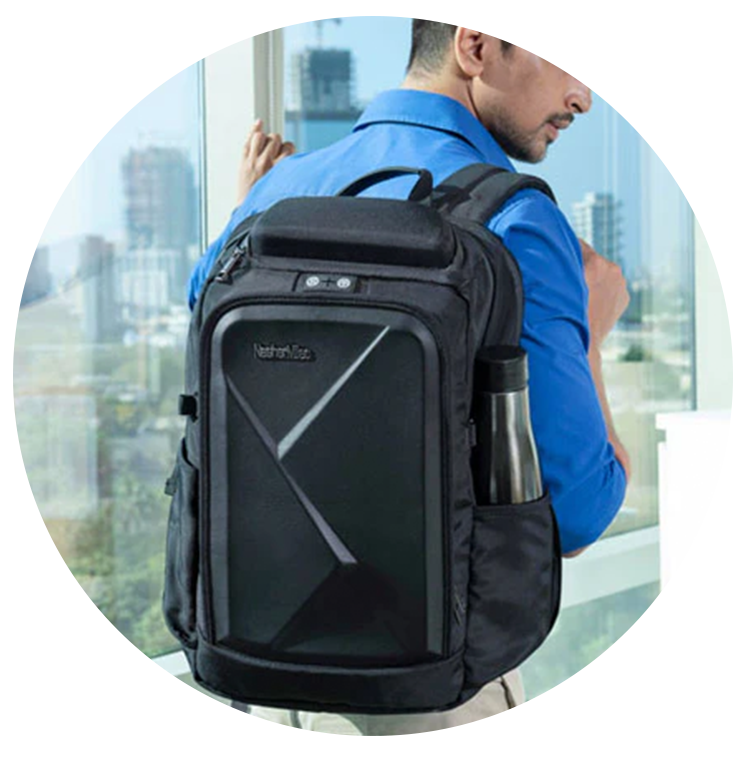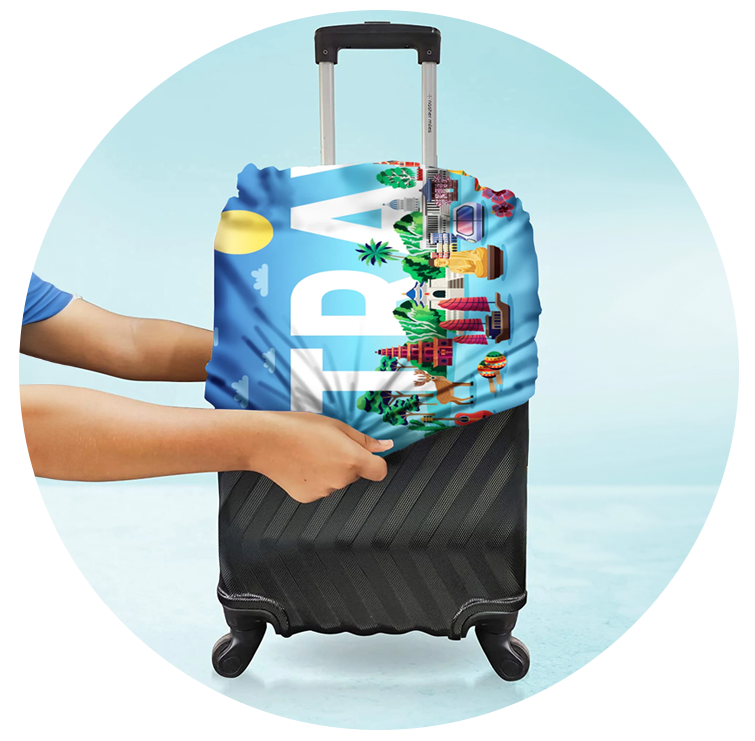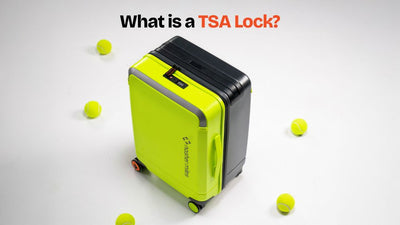Polypropylene or Polycarbonate: Which Luggage Material is Right for You

Want to shop for luggage bags before your next big adventure? Don't fall just for looks. When shopping for luggage bags, the material matters as much as the brand, size, or design. Whether you are a frequent flyer or a person preparing your first global travel, if you line up a decent hard-body trolley bag with you, your traveling experience will be much smoother. Polypropylene and polycarbonate are two of the most fashionable materials nowadays; they are lightweight, fashionable, and durable. But which one suits you better than the other on your part?
This blog will distinguish between the advantages and disadvantages of polypropylene luggage and polycarbonate luggage and assist you in determining which one is the right fit for you to use with your travel lifestyle. The comparison of polycarbonate luggage vs polypropylene will also be accompanied.
Polypropylene Luggage
Polypropylene (PP), is a flexible thermo plastic material that is light in weight. It is normally applied in items that may need to be strong and shock resistant i.e. water bottles, chassis and yup, luggage bags.
Pros
Extremely Lightweight
One of the lightest materials used in modern luggage, polypropylene allows you to pack more while staying within airline baggage limits. For travelers constantly battling weight restrictions, this is a major win.
Highly Flexible and Resilient
Polypropylene bends under pressure without cracking, which makes it ideal for handling airport drops and overstuffed car trunks. This flexibility helps in absorbing impact rather than breaking.
Budget-Friendly
Compared to other hard-shell materials, polypropylene tends to be more affordable. It’s a favorite among budget-conscious travelers who want quality without spending a fortune.
Water and Chemical Resistance
Polypropylene doesn’t absorb moisture easily and is resistant to many chemicals. So, if you’re worried about rain or spillage, this material holds up well.
Great for Casual Travel
Thanks to its lightweight build, many luggage bag brands recommend polypropylene for short-haul or weekend trips.
Cons
Less Durable Over Time
While it resists impact well, polypropylene can degrade faster with repeated rough handling. It’s not always the best choice for frequent fliers or heavy-packers.
Less Premium Appearance
Polypropylene luggage usually doesn’t have the high-gloss, refined finish that some travelers prefer in their hard-body trolley bags.
Not the Best Heat Resistance
High temperatures may warp polypropylene, making it less ideal for certain climate conditions or storage scenarios.
Polycarbonate Luggage
Polycarbonate luggage (PC) is another thermoplastic widely used in the travel industry. It's known for its exceptional impact resistance, transparency, and structural integrity, and is commonly used in things like bulletproof glass and electronic components.
Pros
Superior Durability
Polycarbonate luggage is one of the toughest types on the market. It resists cracking and denting better than most materials, making it ideal for frequent or international travel.
High Impact Resistance
If your luggage often gets tossed around, polycarbonate can take a beating and still look new. That’s why many premium luggage bag brands use this material in their flagship models.
Stylish Finish
Polycarbonate offers a sleek, glossy look that appeals to travelers who want something modern and sophisticated. You’ll often find designer-inspired hard-body trolley bags made of polycarbonate.
Flexible and Lightweight
Although heavier than polypropylene, polycarbonate is still relatively light and flexible, offering a good balance between weight and strength.
Scratch-Resistant Coating (in Premium Bags)
Some high-end polycarbonate bags come with protective coatings to resist scratches, maintaining their shiny finish longer.
Cons
More Expensive
One of the main downsides is the price. Polycarbonate luggage is typically pricier than polypropylene options. However, the investment often pays off in the long run.
Heavier than Polypropylene
If you're focused solely on minimizing bag weight, polycarbonate might not be the lightest choice though it’s still lighter than ABS plastic.
Polypropylene vs Polycarbonate Luggage: What is the Difference?
|
Features |
Polypropylene Luggage |
Polycarbonate Luggage |
|
Weight |
Lighter |
Slightly heavier but still manageable |
|
Flexibility |
Good, but may degrade over time |
Excellent, long-lasting under rough handling |
|
Durability |
Very high |
Moderate to high |
|
Impact Resistance |
Bends under pressure |
Absorbs and disperses shock better |
|
Cost |
More affordable |
More expensive |
|
Appearance |
Basic matte or semi-gloss |
Glossy, sleek, high-end |
|
Heat Resistance |
Lower |
Higher |
|
Ideal For |
Occasional travelers, budget-friendly |
Frequent flyers, international and business travel |
|
Common in |
Entry-level and mid-range luggage bag brands |
Mid to high-end hard-body trolley bags |
|
Longevity |
Moderate |
High |
The polycarbonate luggage vs polypropylene luggage choice ultimately depends on how often you travel and what you prioritise: lightness or strength, affordability, or premium design.
Conclusion
So, which material wins in the luggage material polycarbonate vs polypropylene debate?
If you are an occasional traveler, looking for something lightweight, flexible, and budget-friendly, then polypropylene luggage is the right choice for you. It's perfect for weekend getaways, road trips, or light air travel.
On the other hand, if you travel frequently, especially internationally, or want your luggage to last for years with minimal wear and tear, polycarbonate luggage is worth the investment. For business travelers or those who check bags often, a hard-body trolley bag made of polycarbonate provides peace of mind and visual appeal.
In the polypropylene vs polycarbonate luggage debate, there's no one-size-fits-all answer. Consider your travel frequency, baggage handling expectations, and personal style. Choose wisely and travel confidently.
FAQs
1) Does polypropylene luggage crack?
Polypropylene luggage is highly flexible and resistant to cracking under normal conditions. It bends rather than breaks when subjected to pressure, making it durable for everyday travel. However, with prolonged exposure to harsh environments or extreme force, it may show signs of wear or minor structural fatigue.
2) Is polycarbonate luggage more expensive than polypropylene luggage?
Yes, polycarbonate luggage is generally more expensive than polypropylene luggage due to its superior strength, glossy finish, and long-lasting durability. It’s often used in premium luggage lines, making it a better investment for frequent flyers, whereas polypropylene is more budget-friendly and ideal for casual travelers.
3) Which type of luggage is lighter: polypropylene or polycarbonate?
Polypropylene is typically lighter than polycarbonate, making it ideal for travelers who want to maximize packing space within airline weight limits. While polycarbonate offers greater durability, it does add a bit of extra weight compared to the ultra-light construction of most polypropylene luggage options.
4) Can polycarbonate luggage handle extreme temperatures?
Polycarbonate luggage is known for its high heat resistance and structural integrity in extreme temperatures. It performs well in both hot and cold climates without warping or cracking, making it a reliable choice for global travelers exposed to varied environmental conditions and rough airport handling.
5) Is polypropylene luggage waterproof?
Polypropylene luggage is water-resistant but not entirely waterproof. The material repels moisture effectively, protecting contents from light rain or spills. However, water may seep in through zippers or seams during heavy exposure. For better protection, choose models with sealed zippers or waterproof linings.




















